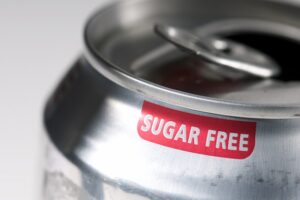Diet soda might seem like a healthier alternative to regular soda due to its lack of sugar. However, this doesn’t mean it’s harmless for your teeth. The acidity in diet soda poses significant risks to your dental health, potentially causing enamel erosion and other long-term effects.
This blog explores how diet soda impacts your teeth, why acidity matters, and how you can protect your oral health with the help of dental professionals like Dr. Andrew Holloman in Clearwater, FL.
Why Acid Is the Real Culprit
When people think about what harms their teeth, sugar is often the first thing that comes to mind. Sugar certainly plays a major role in cavities, but diet sodas—while sugar-free—often contain high levels of acids, like phosphoric acid and citric acid.
These acids can weaken enamel, which is the outer protective layer of your teeth. Unlike bone, enamel cannot regenerate once it’s lost. Repeated exposure to the acids in diet soda softens enamel, leaving your teeth more vulnerable to:
- Cavities or Tooth Decay: Weakened enamel makes it easier for bacteria to penetrate your teeth.
- Discoloration: When enamel erodes, the yellow dentin layer underneath becomes more visible.
- Tooth Sensitivity: Thinner enamel can expose nerve endings, making your teeth more sensitive to hot, cold, or sweet food and drinks.
The Science of Diet Soda and Acidity
 On the pH scale, levels below 7 are acidic, with lower numbers being more potent. Many diet sodas have a pH of around 3, which is dangerously acidic for teeth. Comparatively, water has a neutral pH of about 7.
On the pH scale, levels below 7 are acidic, with lower numbers being more potent. Many diet sodas have a pH of around 3, which is dangerously acidic for teeth. Comparatively, water has a neutral pH of about 7.
Each sip of diet soda bathes your teeth in these acids, softening the enamel bit by bit. Over time, this can lead to long-term damage even if your soda intake feels moderate.
The Ripple Effects of Enamel Erosion
Eroded enamel isn’t just about how your teeth look—it’s about overall oral health. The loss of enamel creates an entry point for bacteria, which can lead to deeper issues like cavities, gum disease, and even infections. Tooth structure may also become weaker, increasing the risk of chipping or breaking.
Even with a great brushing routine, enamel that’s already eroded cannot be restored naturally. That’s why prevention is critical.
How Dr. Andrew Holloman Can Help Protect Your Teeth
If you’re concerned about your diet soda consumption or enamel health, Dr. Andrew Holloman’s dental practice in Clearwater, FL, provides personalized care to safeguard your smile. With years of expertise in general and cosmetic dentistry, Dr. Holloman is committed to helping patients understand the impact of their lifestyle choices on dental health.
Customized Enamel Protection Plans
Dr. Holloman uses advanced diagnostic tools to assess enamel health and develop tailored treatment plans. Here’s how he can help protect your teeth from the effects of diet soda and other acids:
- Fluoride Treatments: Fluoride strengthens weakened enamel and helps prevent cavities, making it an excellent defense against erosion.
- Dietary Guidance: Dr. Holloman offers advice on moderating acidic food and drink while still enjoying your favorite beverages responsibly.
- Dental Sealants: For patients at higher risk of erosion, sealants can provide an added barrier to protect enamel.
- Mouth Guards for Nighttime Protection: For individuals who also grind their teeth at night (a condition called bruxism), the combination of grinding and soda consumption can accelerate enamel loss. Custom mouth guards can prevent additional wear.
Dr. Holloman is passionate about ensuring his patients feel supported and informed. Whether you’re dealing with visible enamel erosion or simply looking for preventive advice, his Clearwater office is here to help.
Tips to Minimize the Damage from Diet Soda
 While quitting diet soda altogether may be the best way to protect your teeth, the following tips can help reduce its impact if you do indulge occasionally:
While quitting diet soda altogether may be the best way to protect your teeth, the following tips can help reduce its impact if you do indulge occasionally:
- Use a Straw: A straw minimizes the contact soda has with your teeth, reducing the risk of acid damage.
- Rinse Your Mouth: After drinking soda, rinse your mouth with water to wash away lingering acidity.
- Wait to Brush: Brushing your teeth immediately after consuming soda can spread softened enamel, worsening the damage. Wait at least 30 minutes before brushing.
- Cut Back Gradually: Switching to less acidic drinks, like sparkling water, or reducing your soda intake step by step is a great way to support your dental health.
By making small adjustments, you can still enjoy your favorite drinks without putting your teeth at unnecessary risk.
FAQs About Diet Soda and Teeth
1. Is diet soda bad for your teeth even without sugar?
Yes. While sugar feeds bacteria that cause cavities, the high acidity of diet soda can erode enamel, making your teeth vulnerable to decay and sensitivity.
2. How much diet soda is safe for teeth?
There’s no universally “safe” amount since even occasional consumption exposes your teeth to acids. However, limiting your intake and practicing good dental hygiene can minimize risks.
3. Which is worse for teeth, diet soda or regular soda?
Both can be harmful, but for different reasons. Regular soda contains both sugar and acids, while diet soda poses risks from its acids alone. Neither is good for your dental health.
4. Can enamel be rebuilt after drinking diet soda?
While lost enamel cannot regenerate, treatments like fluoride applications and remineralizing toothpaste can help strengthen what’s left.
5. How can I tell if my enamel is eroding?
Common signs of enamel erosion include increased tooth sensitivity, a dull or yellowed appearance, and rough or uneven tooth edges. If you notice these symptoms, book an appointment with your dentist.
6. Are all sugar-free drinks bad for teeth?
Not necessarily. Some sugar-free drinks, such as water with electrolytes or herbal teas, have little to no acidity compared to diet soda. Always check labels for citric acid or phosphoric acid content.
Take Action to Protect Your Smile
Your teeth are meant to last a lifetime, but habits like frequent diet soda consumption can compromise that. By understanding the risks and seeking professional guidance, you can keep your smile healthy and strong.
If you’re ready to protect your teeth from the hidden dangers of diet soda, reach out to Dr. Andrew Holloman in Clearwater, FL. The Clearwater team is more than happy to give you credentialed and professional advice.

 Posted by Admin
Posted by Admin